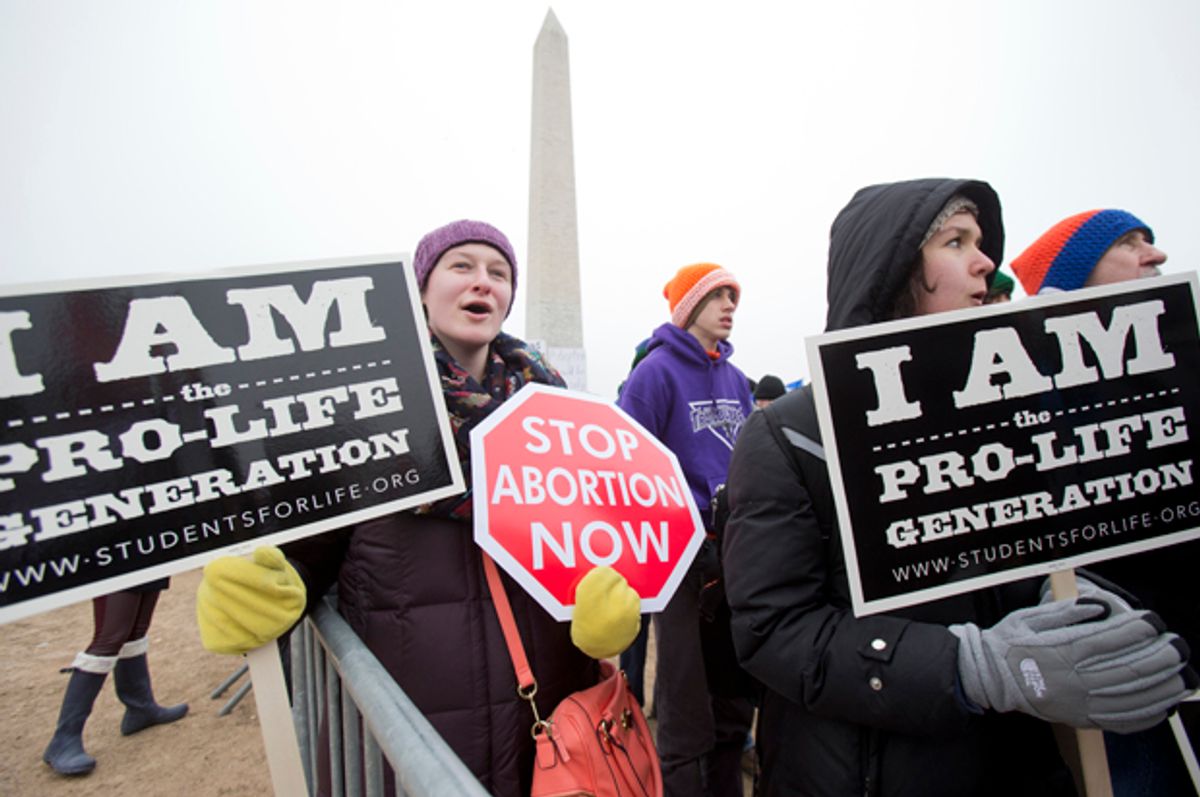Hours after the Supreme Court released its 5-3 decision blocking unfair and unconstitutional abortion regulations in Texas, House Speaker Paul Ryan released a tweet condemning the court’s decision and promising to continue to “protect women’s health & promote life.”
This isn’t a surprising perspective from Ryan. It is a refrain that follows a long pattern of unprincipled policies by Ryan and his ilk of pro-life GOP politicians. Nevertheless, it requires a great deal of intellectual gymnastics to make sense of that opinion in light of his beliefs and the GOP platform more broadly.
It’s important to stare into the heart of the Whole Woman’s Health decision to see exactly how this is: “The plurality added that ‘[u]nnecessary health regulations that have the purpose or effect of presenting a substantial obstacle to a woman seeking an abortion impose an undue burden on that right.’”
One might ask, “Unnecessary regulations? Where have I heard that before?” If one scrolls up just few tweets on Ryan’s Twitter page, the answer appears: “We need to take a smart approach that cuts down on needless regulations while making the rules we do need more efficient and effective, particularly for our small businesses that shoulder a disproportionate share of the federal regulatory burden.”
That’s from Ryan’s economic portion of "A Better Way," the recently released policy platform guide for GOP lawmakers.
If one removes the particularities of the service in question — abortion and women’s health — the message within the GOP platform and the Supreme Court decision are one and the same: Needless regulations place an unfair and unconstitutional burden on the individual seeking services and the provider of those services. Why, then, does abortion change the equation?
The answer is simple, but disappointing: the speaker never intended women to have safer abortions (setting aside the fact that the Supreme Court found that abortions were being provided safely after all). He did not want there to be abortions at all. This truth is contained even within his short tweet, when he promised to “promote life.” The life he is talking about there isn’t, of course, the mother’s, whose health he has feigned concern for — it’s the “life” of the fetus which she has the constitutional right to abort. If you are attempting to promote the wellbeing of the fetus, you can’t claim to care about whether the government is using its coercive power to unfairly regulate the industry which aborts them.
The purpose of this case — while decisive and impactful on future women’s health court cases — was never to decide whether abortion should or shouldn’t happen. It was never to decide whether abortion was right or wrong or worthy of protection. Rather, the GOP-led Texas legislature imposed regulations so severe on clinics that many were forced to close. Imagine even briefly that these regulations were on businesses that, say, sold crutches and wheelchairs. Imagine that they forced many of those businesses to close. It isn’t difficult to imagine how different the post-decision tweet would have been then.
This follows a lengthy trend of inconsistency on the part of Ryan and most of the rest of the GOP establishment. They claim in one breath to be opposed to government intervention and regulation and then, in the next, decry the removal of regulations. This isn’t principled governing, and it is a glaring inconsistency that must be addressed.
Don’t be fooled — Whole Woman’s Health is a victory for any person who wants less government regulation and who trusts an industry’s ability to self-regulate more. It is a victory for anyone who wants an individual in search of services to have a choice of which service to utilize. It was never about abortion.

Shares